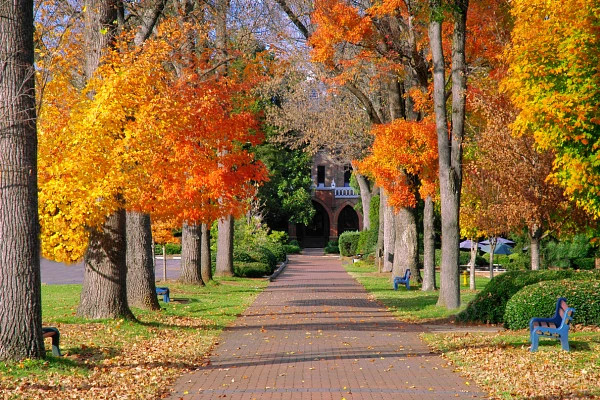Touring Colleges: How Can Families Step Back and Students Step Up?

by Dr. Andrea Malkin Brenner | Estimated reading time: 3 minutes
Visiting campuses is a crucial part of the college selection process for both high school students and their families. It’s also a process that takes money, time, and organization. Given the investment, it's important for families to be efficient and create meaningful experiences.
But all too often these “rights of passage” visits are planned solely by parents and family members, without input or direction from the college-bound students. This is a missed opportunity for young adults to hone organizational, time-management, and decision-making skills they will need to succeed in college.
It’s important to remember that it is the student, not the family, who is heading in a new life arc. Here are several easy suggestions for families to step back and encourage their students to step up when setting out to visit colleges:
Consider When to Visit
Although college visits are usually planned around school breaks, students can play a key role in selecting a time for their family to visit a campus of interest by researching when a specific campus event such as a football game, exhibit, or performance is scheduled. Planning a visit during a special time on campus can enhance the visit and help young adults imagine themselves as college students.
Registering
Students can easily find registration information for admissions events on college admissions webpages. They can take a key role by registering themselves and their families for information sessions and campus tours in a timely manner and calling college admissions offices to inquire about sitting in on a class, meeting with an admission counselor, attending a student panel presentation, or shadowing a current student.
The Information Session
It should be the prospective student, not the family, who checks in at the main desk when they arrive, gathers brochures and other publications, and talks to student ambassadors and staff. Students should be encouraged to take notes and photos of important presentation slides to reference later when they are compiling their applications. Following the session, the student should take the presenter’s business card to follow up with a thank you note.
The Campus Tour
If the opportunity arises, it should be the student who selects the tour guide for their group. Students should also position themselves at the front of the walking group in order to engage in informal conversations with their tour guide. Not only should they take notes and photos during the tour to jog their memory upon return, but they should also arrive with some prepared questions for their tour guide. Some suggestions for questions include campus culture and traditions, how the university supports first-year students, the walkability of campus and the local town, student involvement in clubs and organizations, and relationships with faculty.
Free Time on Campus
Families should be planful about using their time to explore campuses before or after the information sessions and tours. Ideally, students will take the lead to decide which buildings, facilities, and support resources they would like to explore more thoroughly. Whether they want to see a chemistry lab or a music practice room, meet with a history professor, or visit the campus newspaper office, students can schedule meetings with faculty, staff, and current student leaders in advance of their visits.
Exploring the Town and Local Community
Following their time on a campus, students can ask about public transportation, shuttles, or other ways to get into the local town for more exploration. They can also research restaurants, ice cream parlors, or coffee shops that are college student favorites to visit with their families.
Finally, remember that families can play an important role in this process by stepping back and encouraging their college-bound students to take the lead. Parents and families should try to view the college through their student’s lens, not their own. This means keeping the student’s personality, interests, and needs in mind throughout the visit. Considering that their comments will influence their student’s opinions, it’s important for families to listen to their student's thoughts about their college visits before inserting their own opinions.
Spending time on a campus and in the local community is the best way to determine whether a particular college is a good fit. It’s also a great way for your future college student to lead -- not just as a visiting high school student -- but also as a future college student.
Dr. Andrea Malkin Brenner is the creator of the Talking College™ card decks and co-author of How to College: What to Know Before You Go (and When You’re There). She brings 25 years of experience as a college professor and university administrator to her presentations with college audiences. See Dr. Brenner’s website for her articles, resources, podcast recordings, and upcoming talks and webinars.
Skip past news feed



